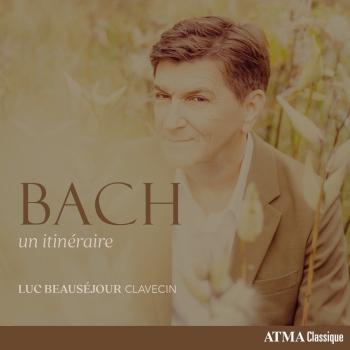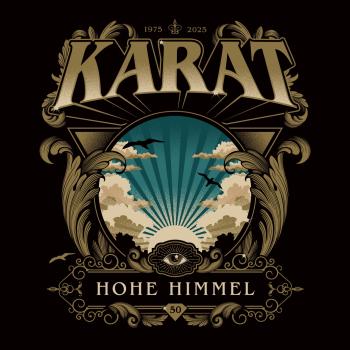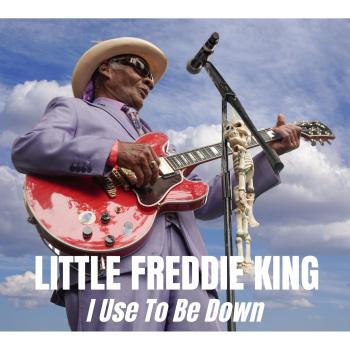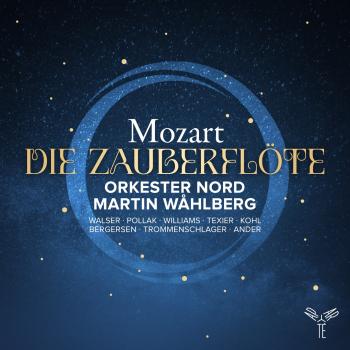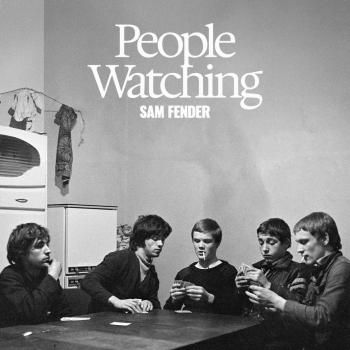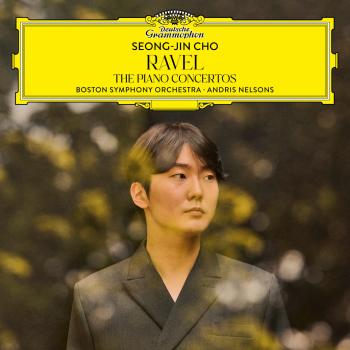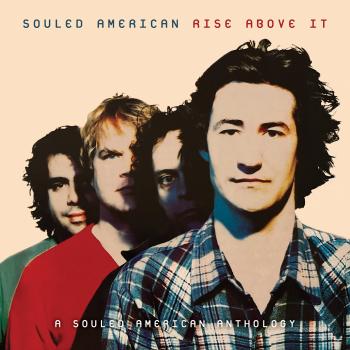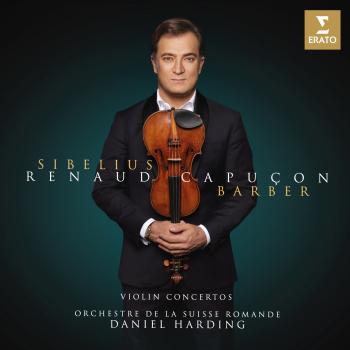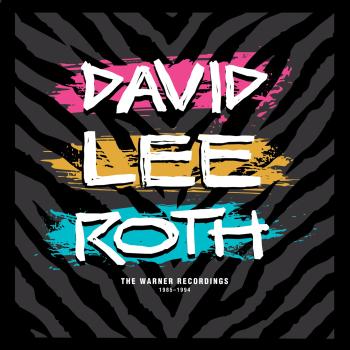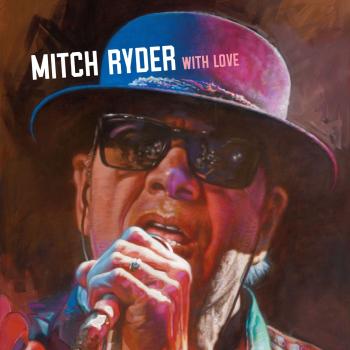
Bach: Organ Masterworks, Vol. V Kei Koito
Album info
Album-Release:
2014
HRA-Release:
24.05.2019
Label: Claves Records
Genre: Classical
Subgenre: Chamber Music
Artist: Kei Koito
Composer: Johann Sebastian Bach (1685-1750)
Album including Album cover
- Johann Sebastian Bach (1685 - 1750): Prelude & Fugue in G, BWV 541:
- 1 Prelude & Fugue in G, BWV 541: I. Prelude 03:19
- 2 Prelude & Fugue in G, BWV 541: II. Fugue 04:47
- Das alte Jahr vergangen ist, BWV 614:
- 3 Das alte Jahr vergangen ist, BWV 614 02:31
- Herr Gott, nun schleuß den Himmel auf, BWV 1092:
- 4 Herr Gott, nun schleuß den Himmel auf, BWV 1092 02:11
- Fantasia & Fugue in a, BWV 904:
- 5 Fantasia & Fugue in a, BWV 904: I. Fantasia 03:08
- 6 Fantasia & Fugue in a, BWV 904: II. Fugue 05:07
- Christe, du Lamm Gottes, BWV 619 (in Canone alla Duodecima):
- 7 Christe, du Lamm Gottes, BWV 619 (in Canone alla Duodecima) 01:25
- Herr Christ, der einig Gottes Sohn, BWV Anhang 55:
- 8 Herr Christ, der einig Gottes Sohn, BWV Anhang 55 02:20
- Wenn wir in höchsten Nöten sein, BWV 641:
- 9 Wenn wir in höchsten Nöten sein, BWV 641 02:23
- Jesus Christus, unser Heiland, BWV 665:
- 10 Jesus Christus, unser Heiland, BWV 665 04:21
- Prelude & Fughetta in G, BWV 902:
- 11 Prelude & Fughetta in G, BWV 902: I. Prelude 06:38
- 12 Prelude & Fughetta in G, BWV 902: II. Fughetta 01:28
- Trio in c, BWV 21/1 (Cantata 21, Ich hatte viel Bekümmernis):
- 13 Trio in c, BWV 21/1 (Cantata 21, Ich hatte viel Bekümmernis) 02:53
- Jesus bleibet meine Freude, BWV 147/6 (Cantata 147, Herz und Mund und Tat und Leben):
- 14 Jesus bleibet meine Freude, BWV 147/6 (Cantata 147, Herz und Mund und Tat und Leben) 03:29
- Adagio, BWV 1001/1 & Fugue in d, BWV 539:
- 15 Adagio, BWV 1001/1 & Fugue in d, BWV 539: I. Adagio 03:12
- 16 Adagio, BWV 1001/1 & Fugue in d, BWV 539: II. Fugue 05:26
- In dulci jubilo, BWV 751:
- 17 In dulci jubilo, BWV 751 02:10
- Jesus, meine Zuversicht, BWV 728:
- 18 Jesus, meine Zuversicht, BWV 728 01:57
- Nun freut euch, lieben Christen g’mein, BWV 734:
- 19 Nun freut euch, lieben Christen g’mein, BWV 734 02:27
- O Lamm Gottes, unschuldig, BWV 618 (in Canone alla Quinta):
- 20 O Lamm Gottes, unschuldig, BWV 618 (in Canone alla Quinta) 02:59
- Fantasia on Komm, heiliger Geist, Herre Gott, BWV 651:
- 21 Fantasia on Komm, heiliger Geist, Herre Gott, BWV 651 06:30
Info for Bach: Organ Masterworks, Vol. V
The Volckland organ (1732/37) of Erfurt’s Cruciskirche is one of the most remarkable baroque (Hochbarock) organs of the Thuringe instrument maker and music theorist. Jakob Adlung refers to it in his Musica Mechanica Organoedi (Berlin, 1768), saying that “Der Klang dieser Orgel ist unvergleichlich.” (“The sound of this organ is incomparable).
The foundation stops of this organ are rich in colour and character. There are several 8’ stops: Principal, Gedackt, Gambe, Gemshorn, Traversiere (sic), Flaut (sic) douce, Quintaton. Among the
Mutation stops, there are two Fifths (Hw and Bw) and the Hw Mixture stop (16’ Plenum) contains the Third. The Hw Cymbel stop is bright and the Bw Mixture is surprisingly full. The Plenum is very powerful and majestic, although the instrument has but 28 stops, with only 2 reeds (Vox humana 8’, Posaune 16’).
During an initial visit a few years ago, I was immediately drawn to elaborating an unusual Bach programme on this organ. Besides authenticated works, there is a piece classed “Anhang”, works that had been attributed to Bach for a long time, as well as arrangements of Cantatas, works which all sound particularly well here, and which, thanks to a unique palette of character, colour and expression, sound at times like a baroque string ensemble, and a times like a vocal music ensemble.
Where the Fantasia and Fugue in A (BWV 904) is concerned, it can be noted, with Christoph Wolff, that “one supposes that this work was surely played on the organ”. For these extraordinary pages, I have occasionally inserted a bass part on the pedalboard.
Lastly, I should like to express my deepest gratitude to the three authors of the texts of this booklet, all of whom are brilliant Bach specialists who accepted to give their points of view, the fruit of their research and pertinent observations on the works of the present programme.
Kei Koito, organ
Kei Koito
has risen to the highest ranks of the world’s concert organists and is widely acclaimed as one of the most exciting performers on the Baroque organ music today.
Born into a family of artists, Kei Koito studied music from the age of six, taking lessons on the piano, cello, harpsichord and in singing. At the age of sixteen she decided to study the organ with Mitchio Akimoto in Tokyo, and subsequently continued her studies with Pierre Segond in Geneva and Xavier Darasse in Toulouse. Following this, she studied Early music in Fribourg with the organist, harpsichordist and musicologist Luigi Ferdinando Tagliavini, and Baroque music with the Baroque violinist and conductor Reinhard Goebel in Cologne. She concurrently studied philosophy and music aesthetics at the University of Fine Arts & Music in Tokyo, and studied with the composer Éric Gaudibert in Geneva composition, orchestration and music analysis from the 16th century to the present day.
After having performed organ music of every repertoire (including many world premieres), since 1985 Kei Koito has focused on baroque music, primarily on the music of J. S. Bach and his important predecessors. Her interpretative approach is both the result of her indefatigable research into historical performance practice, and based on her personal intuition and inspiration.
Kei Koito’s career as a solo concert organist has taken her across all of Europe, the USA, and to Russia and Japan. She has also collaborated with the Baroque orchestra Musica Antiqua Köln (dir. Reinhard Goebel) in Bach’s organ sinfonias (cantatas) or Handel’s organ concertos, and with the Ensemble Gilles Binchois (dir. Dominique Vellard) in music of the Italian Renaissance and Baroque or the French pre-Classical and Classical repertoire. She has performed also the organ concerto of Haydn with the Lausanne Chamber Orchestra and Poulenc’s Organ Concerto with the Orchestre de la Suisse Romande.
As a recording artist, Kei Koito has made several CDs for the Early organ repertoire, playing on extraordinary historic organs. She has won numerous prestigious prizes and awards, among others : the Diapason d’Or, Choc du Monde de la Musique/Classica, “Exceptional Event” of Télérama, “10/10” from Répertoire, “5 stars” from Le Temps and “Editor’s Choice” (Gramophone, Early Music, Musik & Theater, Toccata-Alte Musik Aktuell, Record Geijutsu, Res Musica, Choir & Organ, Orgues Nouvelles). Her recordings have also received a warm and enthusiastic welcome from the general public.
A highly sought-after pedagogue, she has been Professor of Organ at the Lausanne University of Music since 1992. From the very start, her classes included students from all over the world. Since 2012 she has been doing comparative research on the repertoire of Bach, his predecessors, precursors and contemporaries. She has received invitations to give lectures and masterclasses as a visiting professor (at the Royal Academy of Music in London, Austrian Baroque Academy in Gmunden/Salzburg, Conservatories of Rouen, Québec and Buenos Aires, University of Belgrade and some American universities) and she has also frequently served on the juries of international organ competitions (in Maastricht, Aachen, Liège, Wasquehal, St-Omer, Genève, Alkmaar, for the Grand Prix Bach de Lausanne, and at the 50th St Albans Organ Competition).
Since the Lausanne Bach Festival was founded in 1997, Kei Koito has served as its Artistic Director, and she has also been involved with the “Grand Prix Bach de Lausanne” international organ competition from the very beginning. Since 2012 she has participated in productions of Baroque operas by Monteverdi, Lully, Purcell, as well as of secular cantatas by J. S. Bach, oratorios by Handel and others at the Lausanne City Opera.
In autumn 2014, her recording “Organ Music before Bach: works by Pachelbel, Froberger, Muffat, Kerll and Fischer”, released on the Deutsche Harmonia Mundi/Sony Music label, was awarded the Diapason d’Or and received a wonderful echo from many other reviews.
This album contains no booklet.

